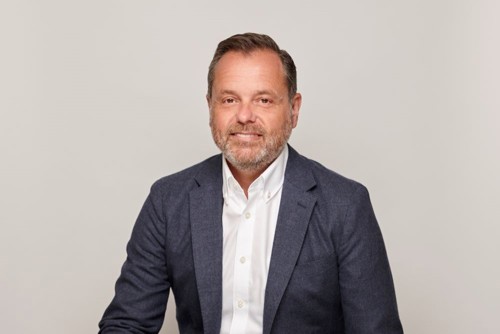
In the current market, it is evident that companies need to think outside the box due to the suppressed demand and capacity returning to meet passenger demand.
Speaking at the air cargo Europe trade fair, Managing Director Phil Wardlaw said cargo capacity is exceeding 2019 levels, putting pressure on tonnage and pricing.
“With that, myself and the team are really challenging ourselves to think differently with our suppliers about how we can offer the best pricing we can in the market to secure tonnage and business,” he said.
Since May last year, when it was confirmed that passenger sector was back, oversupply in the cargo sector became apparent, Virgin has been reacting to that, putting some of the pre-Covid structure back into the business.
This requires a focus to look at each lane, assessing the budget numbers and how yields are performing, getting back into account planning with customers and getting the face-to-face time which had not been possible during the pandemic.
The network has been adjusted with Shanghai returning on 1 May, posting strong results both ways. Other services have been dropped with Virgin withdrawing from Pakistan, which had been good during the pandemic.
The transatlantic has proved resilient while Europe is tougher with Virgin withdrawing wet-leased freighter services and its flown feed.
Wardlaw said, “We are looking at how we can maintain that market and even grow the EU point of sale without the flown feed. There are a number of factors why the European point of sale might be down but we are challenging ourselves to think outside the box, asking how we can do things differently to attract business, working with suppliers and partners in Europe and the UK to drive the European point of sale.”
Yields are coming down month-on-month, said Wardlaw, saying that the return of Shanghai is helping keep up the average, but this could plateau out into the summer.
Unlike last year, there is likely to be a peak in Q4, even if not as big as previous years. Wardlaw is predicting yields to plateau in Q3 with a possible uptick in Q4.
It is always hard to predict the future but Wardlaw expects 2024 to be the year when normality returns.
He said, “I would like to think to retain some competition, yields will stay up on some lanes compared to pre-pandemic because some of those lanes with yields at the moment are not viable from a commercial point of view and I don’t think that is healthy because as long as we can maintain healthy yields on all routes, competition remains on all routes and that competition is important.”

Virgin Atlantic Cargo is taking its digital services to the next level this year by upgrading its cargo management system to Accelya’s SkyChain solution in January to take the Voyager platform to the next level, launching a new product framework in March and launching myVS in May to manage and track shipments.
The new myVS product is limited to the UK and South Africa with the US due to follow soon, and is only serving general, pharma and fresh cargo for now.
It will be the portal of choice for regular bookings with other shipments being dealt with through offline channels.
Among the launch customer base, the number of eligible bookings going online is 20%, which exceeded expectations as this was the target for the end of the year.
Complex IT projects and such as upgrading the cargo management system always present challenges, with Wardlaw admitting the launch was not perfect but the airline was keen to stick to its schedule for launching the rest of its digital upgrades.
“It wasn’t plain sailing but our team and Accelya came together; we knew what we needed to do. We went live with a few defects in the system, that was a deliberate choice by us and we have continued to work through some of those defects. We felt it was important to hold that go live date,” he says.
Customers understood why Virgin went live with an imperfect system because the digital upgrade needed to be done, said Wardlaw, adding the issues have mainly been internal, which would not affect customers. It needed to be done so service was 24/7 and customers could interact with Virgin how they wanted to.
He said, “We knew we needed to make that leap, we needed to simplify our product offering and make it much more intuitive then back it up with a service level offering that they could choose.”
Reflecting on his year and a half in the role, the digital transformation of Virgin Atlantic Cargo with the launch of the new Voyager platform is something that makes Wardlaw very proud.
Having been in engineering all of his career, coming into cargo has been fascinating for Wardlaw, helped by the welcoming team at Virgin Atlantic Cargo.
He says, “A lot of our digitisation programmes are in place and delivering and some of our operational and commercial plans are just on the cusp of changing.”
This article was published in the June issue of Air Logistics International, click here to read the digital edition and click here to subscribe.
